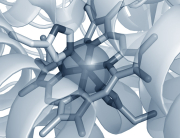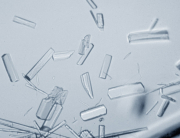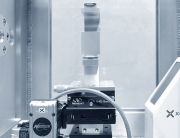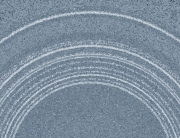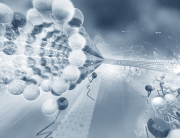General Description
Astrazeneca is a global, innovation-driven, integrated biopharmaceutical company. Our mission is to make a meaningful difference to patient health through great medicines that bring benefit for patients and add value for our stakeholders and society. We discover, develop, manufacture and market prescription medicines and our primary focus is on three important areas of healthcare:
- Cardiovascular and Metabolic disease (CVMD);
- Oncology;
- Respiratory, Inflammation and Autoimmunity (RIA).
We are also active in the Infection, Neuroscience and Gastrointestinal (ING) disease areas. Astrazeneca has more than 51,000 employees worldwide. We invest over $4 billion in R&D each year and have around 9,000 people in our R&D organization.
Margareta Ek, PhD, Associate Principal Scientist (20%).
Arjan Snijder, PhD, Associate Principle Scientist (10%) The Discovery Sciences department will engage actively in producing membrane proteins, biophysical characterization, crystallization and scattering and diffraction studies at synchrotron radiation sources.
Academic Supervisor
Gisela Brändén, PhD, Department of Chemistry and Molecular Biology, University of Gothenburg.
The Discovery Sciences department in AstraZeneca has extensive experience in target protein production (soluble, secreted, membrane proteins, NHR, GPCRs, IC etc). The group is highly competent in membrane protein production, crystallization, biophysical characterization and screening. The infrastructure and facilities are state of the art, with probably the highest density of protein purification equipment in Europe.
PhD supervisor: Dr Margareta Ek
Objectives:SO = Scientific Objectives;
TO = Training Objectives.
SO1: Grow microcrystals of membrane proteins for XFEL based studies.
SO2: Solve structures of membrane proteins with bound inhibitors.
SO3: Evaluate fragment assisted drug discovery to find starting points on membrane proteins.
TO1: Training in membrane protein biochemistry, purification and crystallisation.
TO2: Training in the use of state-of-the art X-ray sources.
TO3: Training in structure based drug-design in an industrial context.
Growing membrane protein nano-crystals of membrane proteins for data collection and analysis using synchrotron and XFEL radiation. This work will lead onto structural studies of these membrane proteins with bound inhibitors so as to contribute to drug-development projects. This student will be educated in the tools of advanced X-ray diffraction in an industrial context.
Involvement with other tasks: Assist other partners in developing the field and to contribute to the research within pharmaceutical companies.
Local Training: This ESR will be enrolled as a PhD student at the University of Gothenburg where many courses are given in English (structural biology, protein engineering, computing etc.). The Academic supervisor will be Dr. Gisela Branden (UGOT)
PUBLICATIONSMraY–antibiotic complex reveals details of tunicamycin mode of action
Hakulinen J.K., Hering J., Brändén G., Chen H., Snijder A., Ek M., Johansson K
Published online– PMID: 28068312 DOI: 10.1038/nchembio.2270

ESR
Jenny Hering
BSc Technische Universität Darmstadt, Germany, in Biosciences
MSc Johann Wolfgang Goethe-Universität Frankfurt am Main, Germany, in Biophysics
Research projects
MSc project “Production and purification of the voltage-gated ion channel KvAP“(University of Gothenburg)
Student project „Recombinant production, purification and crystallization of a bd-type quinol oxidase“(Max-Planck-Institute of Biophysics)
BSc project“ Production, purification and functional characterisation of the G protein coupled receptor binding angiotensin II“(Max-Planck-Institute of Biophysics)


